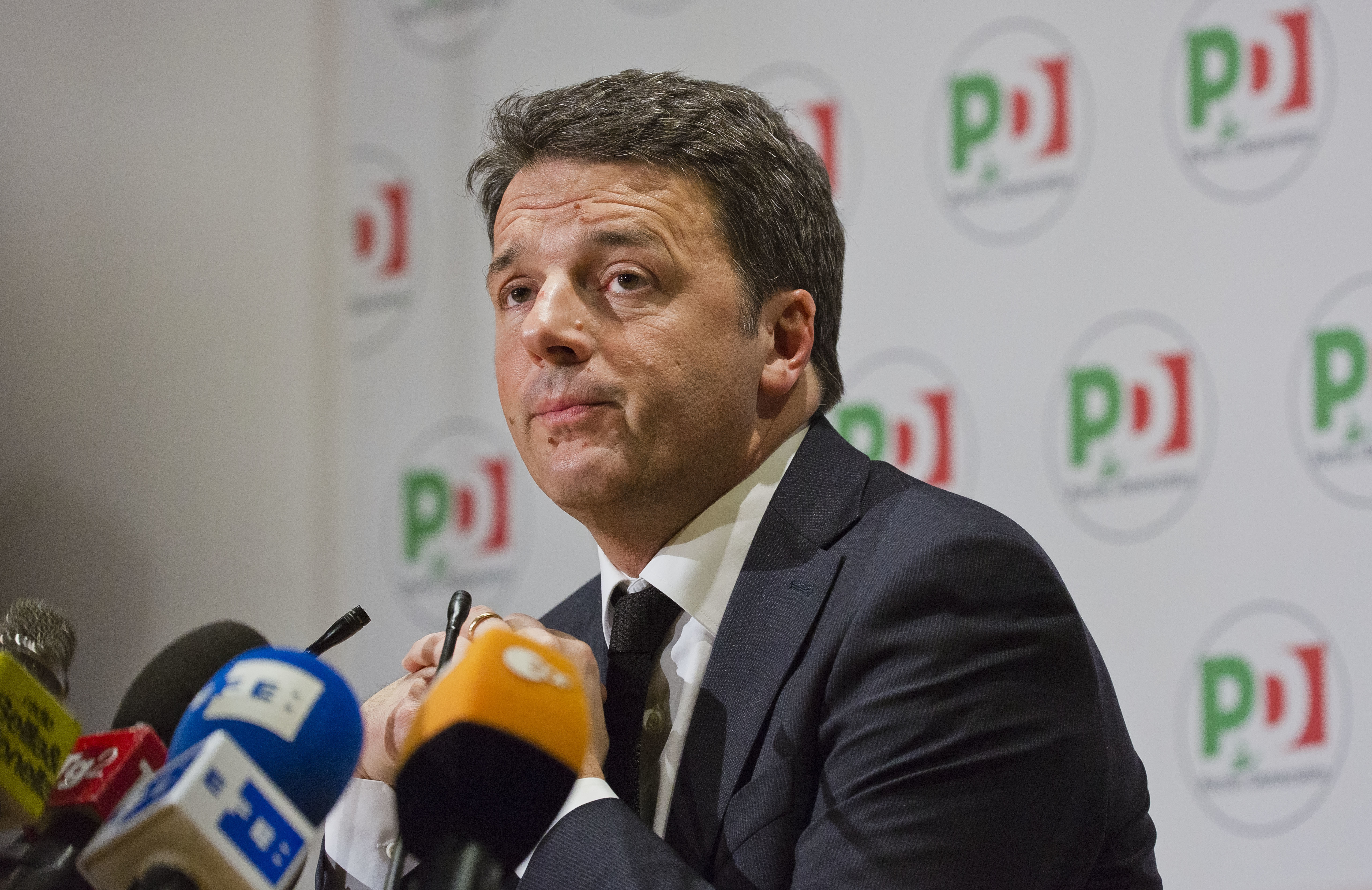
By NICOLE WINFIELD
COLLEEN BARRY
Associated Press
ROME (AP) — Former Italian Premier Matteo Renzi on Tuesday challenged members of his defeated Democrats to publicly declare if they’ll support the populist 5-Star Movement, throwing down the gauntlet as he tries to prevent his party from fracturing and backing its political nemesis.
Analysts say he has reason to worry. Given both the numbers and ideologies, a 5-Star government supported by elements of the Democratic Party may be the most stable and logical solution to Italy’s inconclusive elections. Renzi has said he would resign as party chair given the Democratic Party’s disastrous showing of less than 23 percent of the vote — the worst result ever for the left.
And he pledged the Democrats wouldn’t align with either the 5-Stars, which emerged from the election as the single-biggest party with 32 percent of the vote, or the center-right coalition, led by the anti-immigrant League, with 37 percent. In a Facebook message Tuesday that suggested defections were a real threat, Renzi reminded hissupporters that both the 5-Stars and the League “represent the opposite of our values.”
“They’re anti-European, anti-political and have used a language of hatred,” Renzi wrote. “They said we were corrupt, mafiosi, and that we have blood on our hands because of immigration. I don’t think they’ve changed their mind overnight.” “For me, the Democratic Party has to be where the people put us: in the opposition,” Renzi wrote. “If anyone from our party thinks otherwise, let him or her say so,” either in an upcoming party meeting or in
Parliament. The success of the 5-Stars, a grassroots internet-based movement that only was launched nine years ago, came in great part at the expense of the Democrats, including in their onetime stronghold of Emilia- Romagna in northern Italy.
Researchers at the Bologna-based Cattaneo Institute, analyzing data from a select number of cities, concluded that of the 2.6 million voters the Democrats lost since the 2013 general election, “relevant numbers” went to the 5-Stars, as well as to a lesser degree the League and a new left-wing party. “All this indicates that the 5-Stars are the Democrats’ competitors, offering electors a ‘truer’ left than that embodied by a leader like Renzi,” the researchers said.
As a result, analysts say, Renzi has reason to be concerned about the rank-and-file’s intentions. “I always start from the numbers. And the numbers tell me there are not many coalitions available,” said Roberto D’Alimonte, a political scientist at Rome’s LUISS University. “Today it looks very strange. But after a few weeks of useless searching, I think … it won’t look so strange.”
Paolo Magri, director of the ISPI think tank in Milan, said precisely because many of the 5-Stars’ new voters hailed previously from the Democratic Party, “a tie-up with the (Democrats) is more acceptable than with the League.” “The 5-Star program is so malleable that it allows different readings,” he told The Associated Press. “The legitimate choice of the 5-Stars was to water down themes more crucial to the program so they would be appealing to both ends of the spectrum.”
The 5-Stars call themselves a grassroots “direct democracy” movement, with members voting for candidates and platforms via its online platform. The 5-Stars defy typical left-right ideology, espousing a platform that is green and anti-bank, and for the campaign, included a proposed monthly payment to Italians just for being citizens. The 5-Stars have evolved since the last parliamentary election when they refused to deal with any party, and want to become “the new establishment,” D’Alimonte said.
“From anti-establishment to new establishment, and they want to gain credibility,” which they can do more effectively with the Democrats than with the extremists of the League, D’Alimonte said. Indeed, while both the League and the 5-Stars often share the euroskeptic and populist monikers, such labels paper over their differences. “The League is ideologically euroskeptical. The 5-Stars are tactically euroskeptical,” Magri said.
Silvio Berlusconi, the three-time premier who dominated Italian politics for the past quarter century, was left in the dust of the election aftermath. In a major upset, his Forza Italia party came in second to the League within the center-right. In his first comments since the election outcome, the 81-year-old Berlusconi said the results would have been different if he hadn’t been prevented from running as a candidate because of a tax fraud conviction. But he insisted he was still the head of Forza Italia, the “director of the center-right and the guarantor of the cohesiveness of the coalition.”















